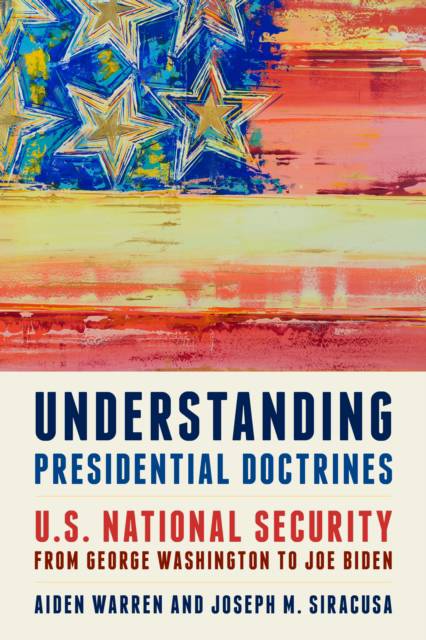
- Afhalen na 1 uur in een winkel met voorraad
- Gratis thuislevering in België vanaf € 30
- Ruim aanbod met 7 miljoen producten
- Afhalen na 1 uur in een winkel met voorraad
- Gratis thuislevering in België vanaf € 30
- Ruim aanbod met 7 miljoen producten
Zoeken
Understanding Presidential Doctrines
U.S. National Security from George Washington to Joe Biden
Aiden Warren, Joseph M Siracusa
Hardcover | Engels
€ 184,95
+ 369 punten
Uitvoering
Omschrijving
This new and expanded edition of Presidential Doctrines offers a comprehensive analysis of past and present US presidential doctrine, from George Washington to the beginnings of the Biden administration. Warren and Siracusa expertly assess key doctrines, demonstrating that the current dilemmas facing the United States are a continuation of perennial foreign-policy challenges.
Specificaties
Betrokkenen
- Auteur(s):
- Uitgeverij:
Inhoud
- Aantal bladzijden:
- 328
- Taal:
- Engels
Eigenschappen
- Productcode (EAN):
- 9781538155264
- Verschijningsdatum:
- 14/02/2022
- Uitvoering:
- Hardcover
- Formaat:
- Genaaid
- Afmetingen:
- 152 mm x 229 mm
- Gewicht:
- 648 g

Alleen bij Standaard Boekhandel
+ 369 punten op je klantenkaart van Standaard Boekhandel
Beoordelingen
We publiceren alleen reviews die voldoen aan de voorwaarden voor reviews. Bekijk onze voorwaarden voor reviews.








